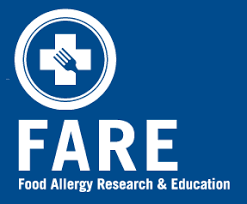Springtime is allergy season. No matter were you live, the changing seasons bring new outdoor and indoor allergens for people with seasonal allergies to cope with.
But while people sniffle and wipe watery, itchy eyes, there’s another allergy that isn’t always as visible, but incredibly serious. Life-threatening food allergies affect millions of people, are increasing, and can develop at any point in a person’s life. Severe reactions send about 200,000 people to the emergency room each year in the United States.
According to Food Allergy Research & Education (FARE), this week (May 13-19) is designated as National Food Allergy Awareness Week. Foods including milk, eggs, peanuts, tree nuts, wheat, soy, fish, and crustacean shellfish are the culprits behind the majority of food allergies in the United States, but many people have allergies to other foods. While some reactions are immediate and obvious, others are more subtle. As a nurse on the front-lines of patient care, it’s important to consider food allergies when presented with new and undiagnosed symptoms.
According to FARE, common symptoms of allergic reactions to food include:
- Itchy mouth
- Hives
- Nausea/vomiting/stomach pain
- Nasal congestion or stuffiness
- An odd taste in the mouth
- Difficulty breathing
- Throat tightening
- Loss of consciousness
- Turning blue
- Weak pulse
- Anaphylaxis
Taken alone, each of these symptoms could be attributed to many other illnesses or reactions. But as each exposure to a potential allergen can cause a more severe reaction, it’s prudent to make sure you consider food allergy for patients presenting with these symptoms.
If you or the patient suspect food might be triggering the symptoms, help guide them to proper allergy testing and tips on how to avoid the allergen. Instruct them to call 911 if they suspect an allergic reaction to food as the reaction can be unexpectedly sudden and severe. Help determine an appropriate care plan for the immediate future to keep the patient aware and as safe as possible.
Becoming more aware of food allergies and what reactions might look like is another tool in your nursing toolbox that could help save a life.
- Is the FNP Program Right for You? - April 24, 2024
- WOC Nurses Week Highlights Specialty - April 16, 2024
- Honoring Radiology Nurses Day on April 12 - April 12, 2024



